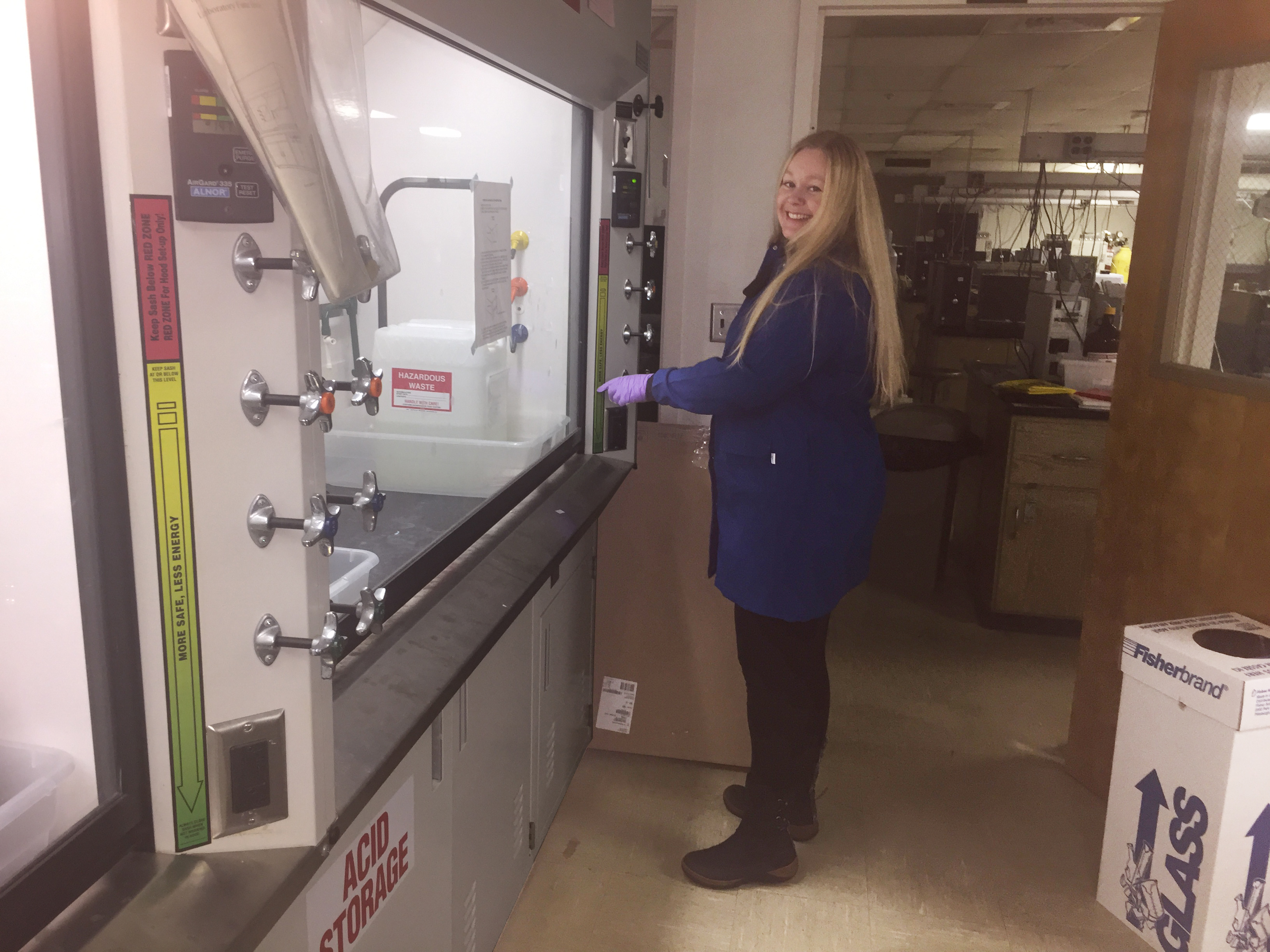What We Do Here Matters
Will you help us tell this story? We are looking for examples of F&A staff who model what it means to do something that matters. We want to tell the story of those who give their all to UGA every day so we are all inspired to do the same; because when we work together with a common purpose, we will achieve much more than we would on our own.
If you have an example of someone (or a group) who exemplifies the idea of “what we do here matters”, please email fanda@uga.edu for the opportunity for your story to be shared in an upcoming edition of the F&A Advisor.
Highlight: The University of Georgia Green Lab Program

The University of Georgia Green Lab program is committed to implementing sustainable practices and technologies in research labs, without compromising the quality of research. This program focuses on reducing resource consumption, as well as reducing both hazardous and nonhazardous waste generated in our 1900+ research labs on our main campus.
Research labs consume around 10 times the resources of a classroom or office. They generate an estimated 25 times the waste, thus making them low hanging fruit for sustainability efforts at UGA.
There are two main focuses of the program: The Green Lab programs serves UGA researchers at the user level, as well as creates policy and cultural changes which will benefit UGA on a system, operational, and institutional level. While both aspects are important, this second part is imperative to helping UGA meet and maintain our sustainability goals.
The user-level program includes energy-saving initiatives such as shutting the fume hood sash, using timers for bench top equipment, temperature tuning ultra-low freezers, and purchasing energy saving equipment. Water-saving initiatives include autoclave awareness, replacing sink aspirators with vacuum pumps, eliminating single-pass cooling, and using waterless condensers.
The Green Lab program is also readily seeking solutions to reduce and eliminate waste leaving our research labs. They have a partnership with Athens Clarke County (ACC) which removes non-inventoried and unwanted Pyrex and other specialty lab glass from UGA labs. They offer it to local ACC teachers via the Teacher Reuse Store at the CHaRM (Center for Hard to Recycle Materials). These glass pieces are not recyclable and are often extremely expensive. This program diverts these items from the landfill and places them in the hands of science teachers who may not otherwise have the budget to afford them. Thus, this program serves our future scientists. The Green Lab program also supported the development of an animal bedding composting program. This serves our research vivaria and diverts this waste from the landfill. Instead, it goes to our Bioconversion Facility to be composted and then used in landscaping/planting around the UGA campus. Finally, the green chemistry component of the Green Lab program educates researchers to utilize less hazardous chemicals in their research when possible, thus reducing hazardous waste generated in research labs. With the nation’s recycling industry in crisis due to China’s National Sword Policy, we are now looking at 111 million metric tons of plastic recyclables with nowhere to go (https://news.uga.edu/scientists-calculate-impact-of-chinas-ban-on-plastic-waste-imports/). Thus, the UGA Green Lab program is not sure when they will be able to offer a recycling program to UGA’s labs, but are fervently pursuing this. An estimated 95% of the plastics leaving UGA lab spaces are #5 polypropylene—a plastic which is currently extremely expensive to recycle and is in little demand.
Due to these challenges on the user-level, the UGA Green Lab program is also working at an institutional and national level to create policy changes which will benefit and support these initiatives. “We were surprised to learn that UGA, a R1 Research Institution, has virtually NO sustainability policies, and it is our goal to help shift this,” said Star Scott, Green Lab Program Coordinator. Instead of looking “downstream” to address waste leaving UGA’s labs and figuring out what to do with hard-to-recycle end-products, such as Styrofoam coolers and ice packs, the UGA Green Lab program is looking “upstream” to figure out how to divert these items before they even arrive on campus. This involves working closely with the International Institute of Sustainable Laboratories Lab Waste Diversion Working Group, the A.C.T. label (act.mygreenlab.org), and a team of higher education peers from across the country. “The goal is to create changes at the procurement level and let manufacturers and distributors know we are no longer going to take on this burden by ourselves. The researchers already have a focus and they shouldn’t have to take on this, as well,” says Scott. “However, in order to create these changes at the procurement level, we need policies in place which support these initiatives. Giving preference to lab purchases which support our waste diversion goals sends a strong message to manufacturers and distributors. Many are now developing take-back programs for hard-to-recycle items and/or offering sustainable solutions in lieu of the old ways.”
The Red and Black recently published an article, Trash Troubles, which stated UGA was not going to meet its 2020 Waste Diversion goals. The article blamed end-users not caring enough for this failure, but that is simply not accurate. These goals would never be met at a user-level, but rather at a systems or an operational level. It’s not enough an object is labeled as “recyclable”—we need to design this waste out of our system before it even gets here. In the lab, this shift might look like dry-shipped enzymes, instead of vials shipped in a cooler full of icepacks, or easily refillable cardboard pipette tips racks, instead of #5 plastic pipette tip boxes.
UGA not only has an opportunity to champion this movement for the USG system, but also a responsibility to lead the charge as our state’s flagship institution. The UGA Green Lab program is dedicated and driven to find viable solutions for both our research community, as well as for our institutional processes. This program was started by scientists FOR scientists and seeks to support the UGA research community and our institutional goals.

